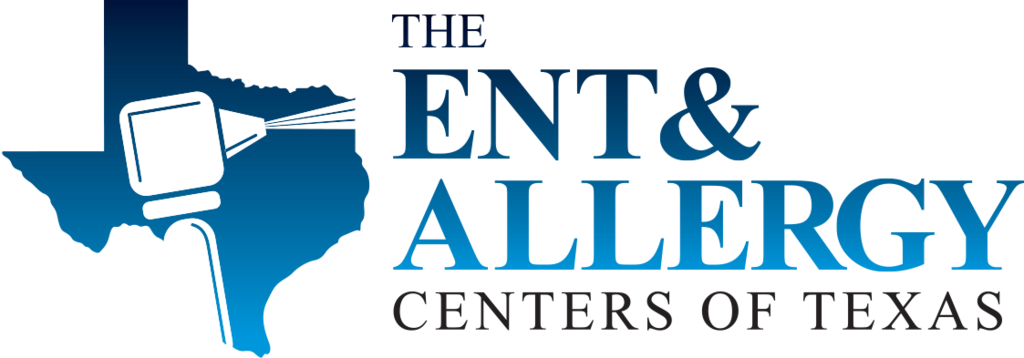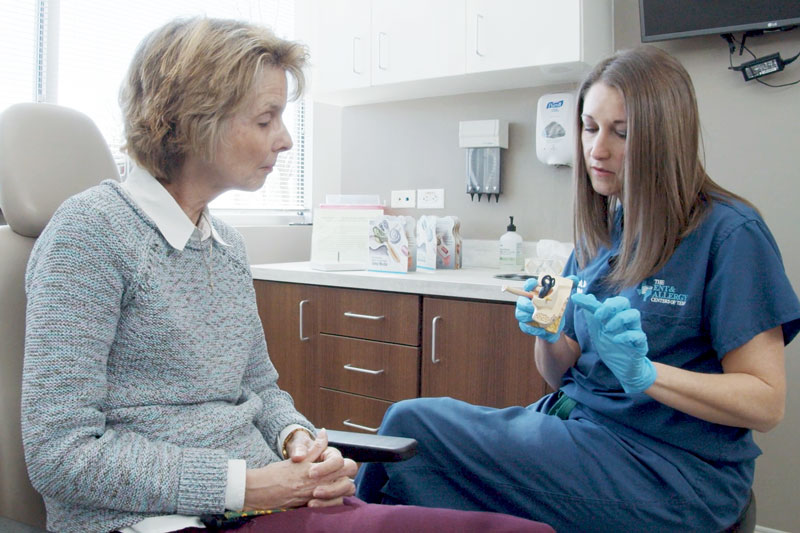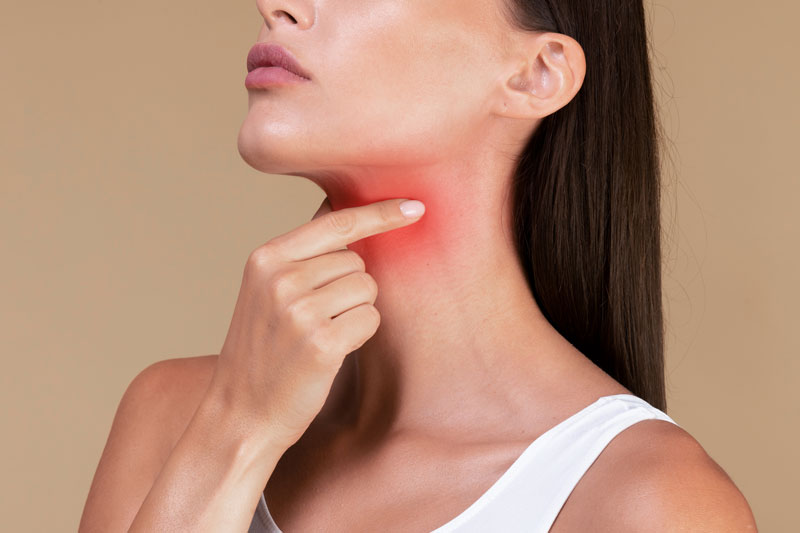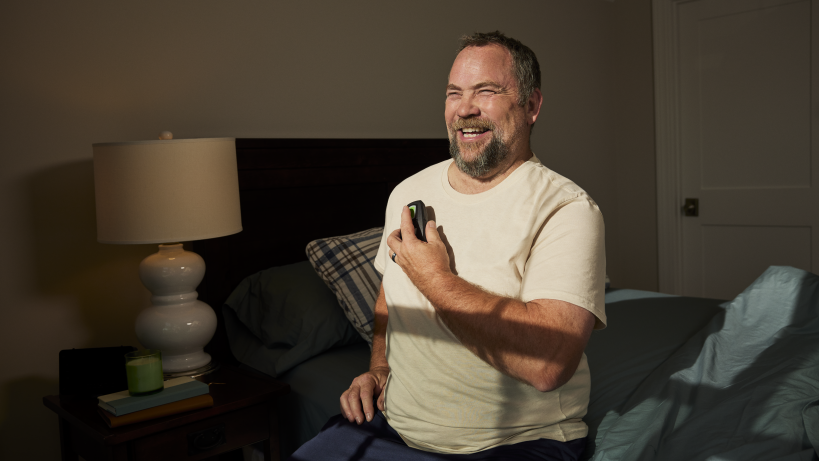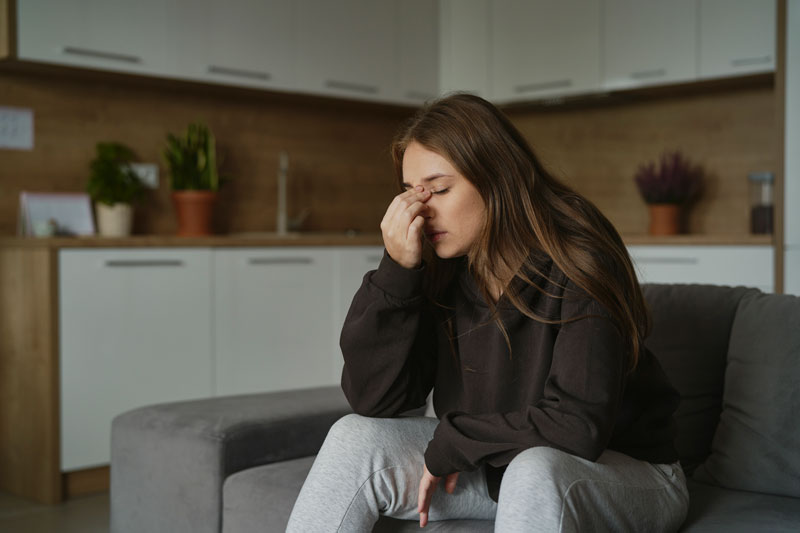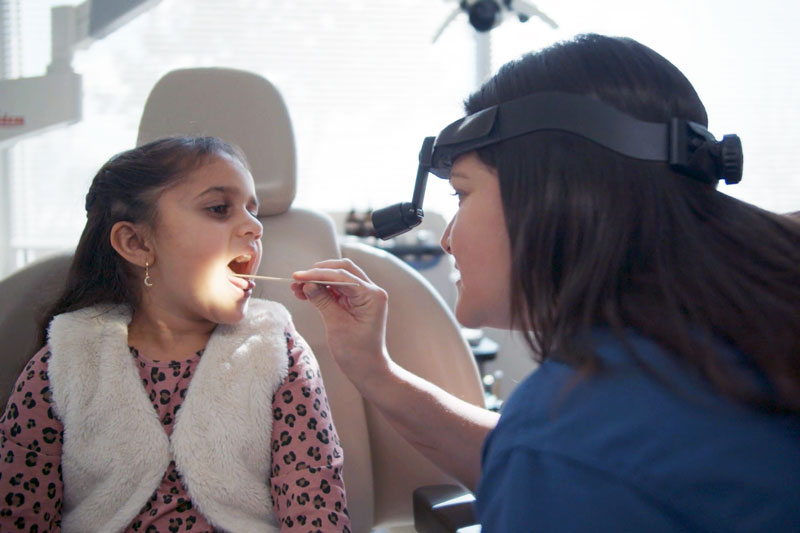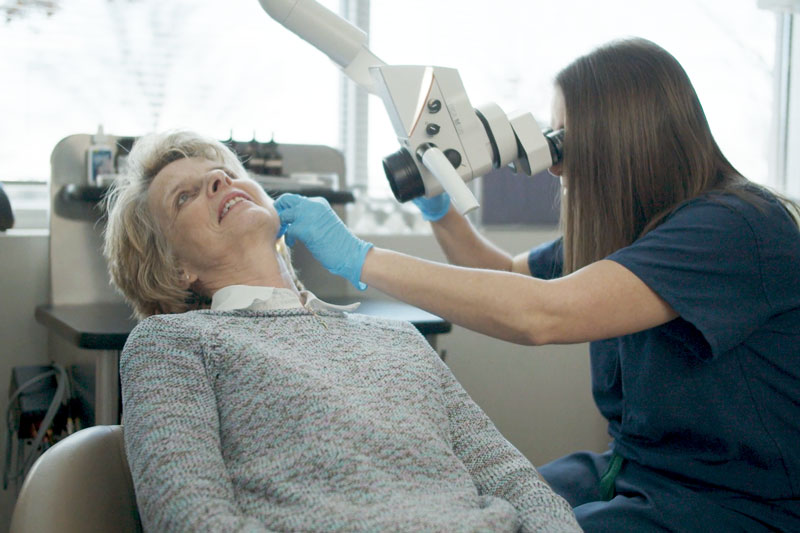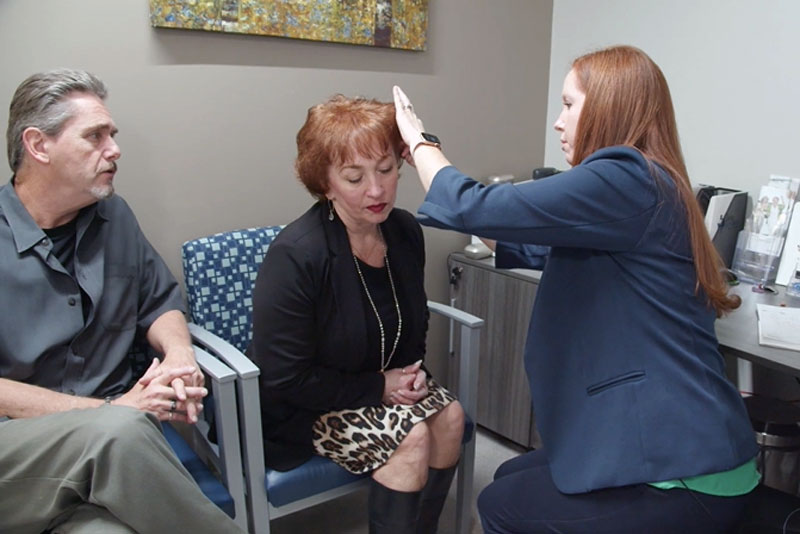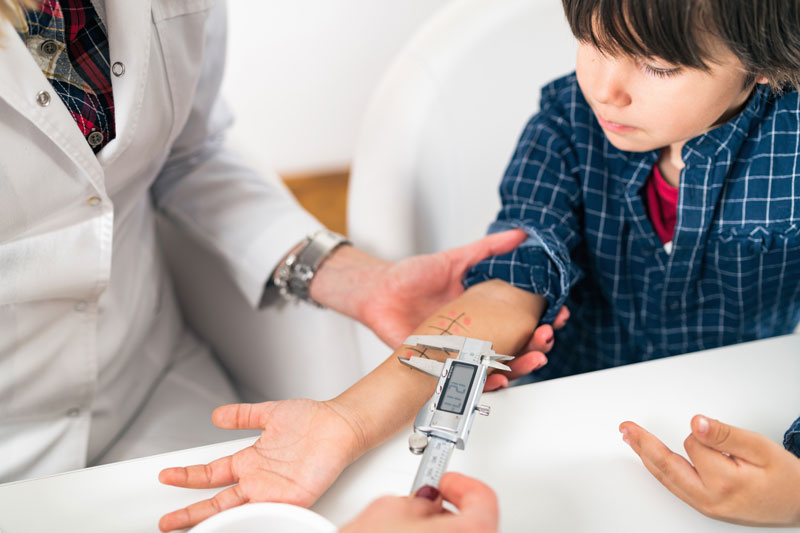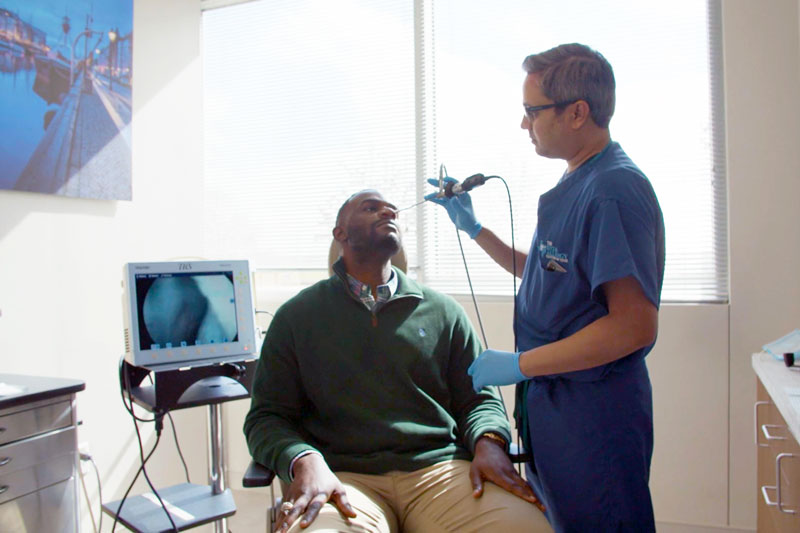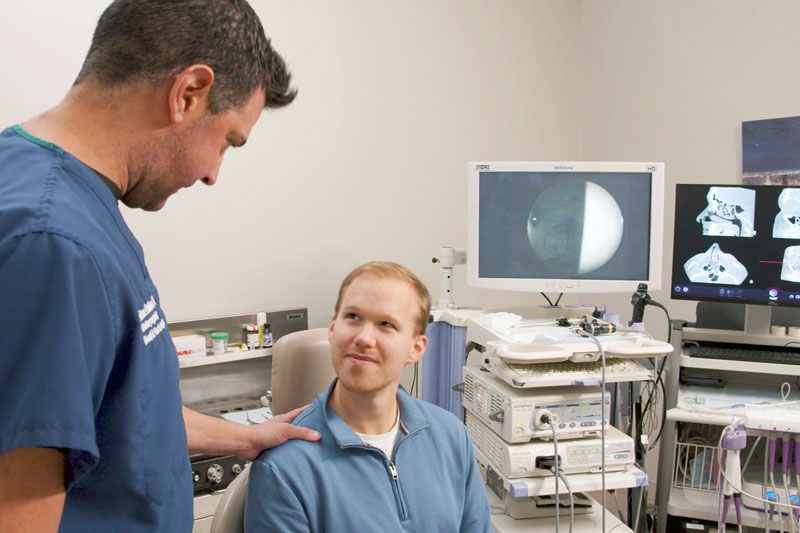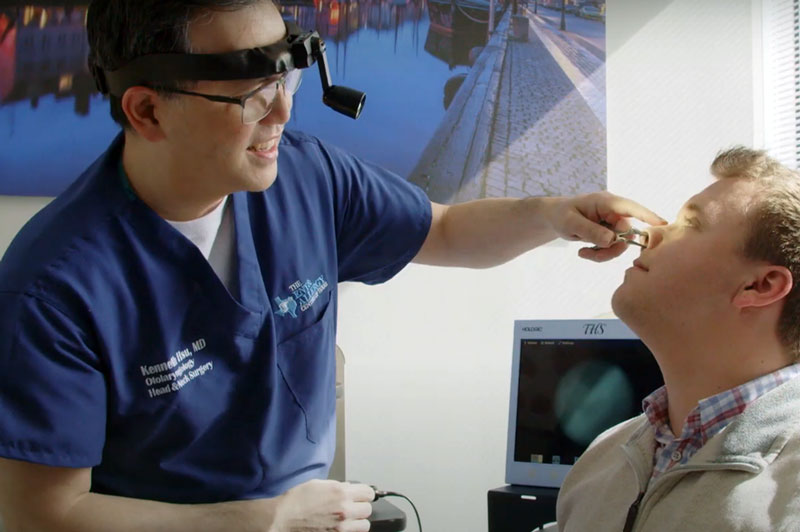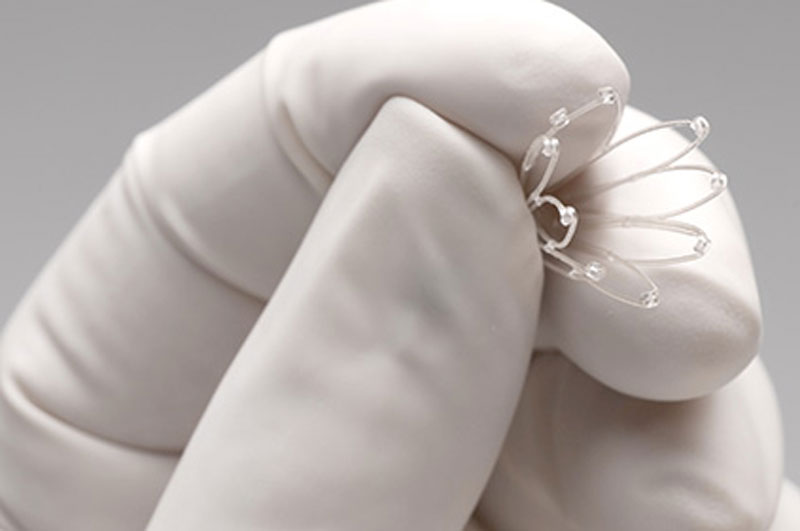What is Obstructive Sleep Apnea?
Obstructive sleep apnea (OSA) is when breathing repeatedly stops and starts during sleep. These interruptions in breathing, often accompanied by gasping or pauses, typically do not wake the individual (although they’ve been known to keep their partner awake). Approximately 22 million Americans suffer from this disorder, and many are unaware of their condition.
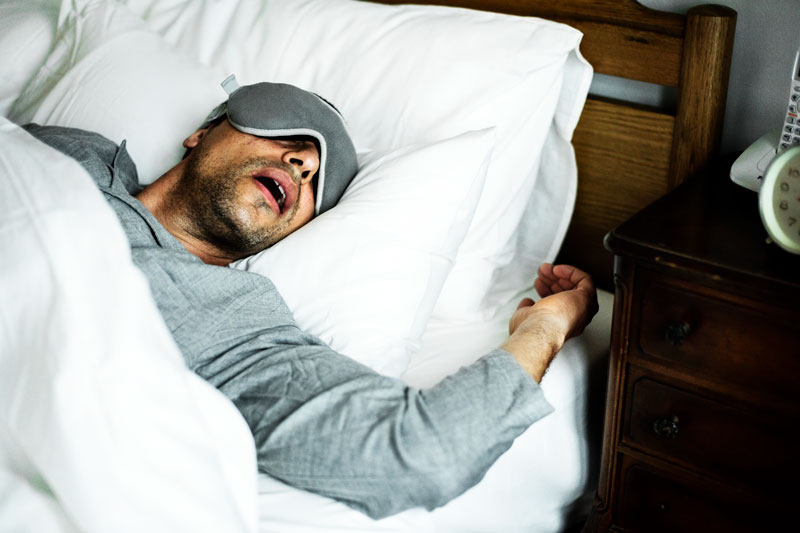
What Causes Obstructive Sleep Apnea?
Several factors can lead to the partial or complete obstruction of the airway during sleep:
- Obesity
- Aging
- Cardiovascular problems
- Relaxed throat and tongue muscles
OSA can affect individuals of all ages but is more common among older adults; however, young adults and children can have sleep apnea. Pediatric sleep apnea is when a child’s breathing is repeatedly blocked during sleep. This can lead to fragmented and poor-quality sleep, affecting their overall health and development. If you suspect your child may have sleep apnea, talk to your provider at The ENT & Allergy Centers of Texas.
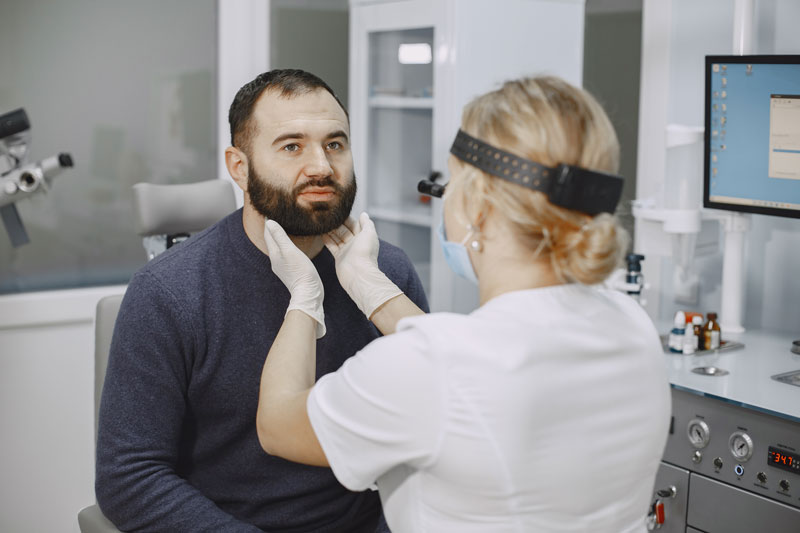
How do I Know if I Have Obstructive Sleep Apnea?
Sleep apnea is a severe medical condition that requires prompt attention and treatment. Untreated sleep apnea can lead to a range of health complications and significantly impact the quality of life. Common symptoms of obstructive sleep apnea include but aren’t limited to:
- Silent pauses in breathing
- Loud snoring
- Choking or gasping sounds
- Morning headaches
- Daytime sleepiness and disorientation
- Dry mouth or sore throat upon waking
- Difficulty concentrating, irritability, and anxiety
- Fragmented, poor-quality sleep
Recognizing the symptoms of obstructive sleep apnea is the first step toward better health. If you suspect you have OSA, it is essential to seek medical evaluation and appropriate treatment. Early diagnosis and management can prevent serious health complications and significantly improve your quality of life.
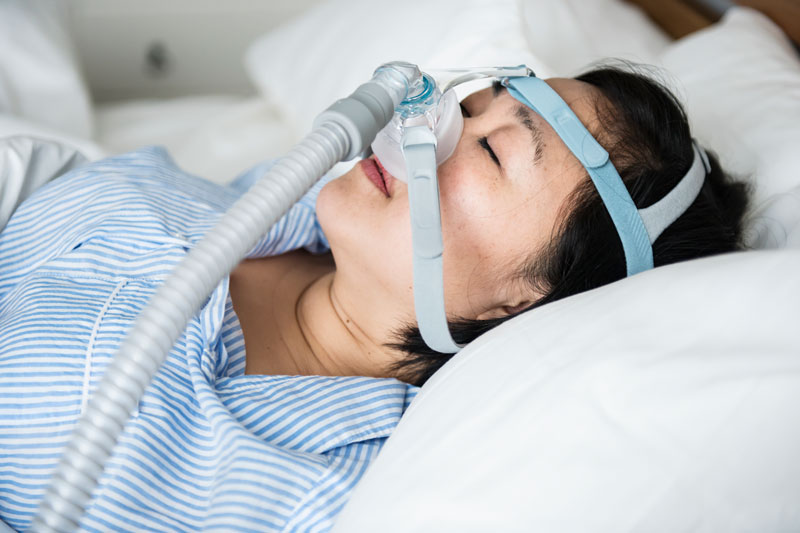
What Are My Treatment Options for Obstructive Sleep Apnea?
Untreated sleep apnea can lead to serious health issues such as heart failure, stroke, heart attack, high blood pressure, and cardiac arrhythmia. If you suspect you have sleep apnea, it is crucial to consult your ENT doctor for a thorough examination and potentially a sleep study test.
You might reduce the severity of sleep apnea symptoms by implementing lifestyle changes such as:
- Losing weight
- Reducing or eliminating alcohol, especially before bedtime
- Quitting smoking
- Sleeping on your side or elevating your head
- CPAP Device
- Inspire Sleep Apnea Innovation
Continuous positive airway pressure (CPAP) is the preferred treatment for sleep apnea. It delivers controlled bursts of air into the throat through a mask worn over the nose and mouth, ensuring the airway remains open during sleep.
Inspire is the only FDA-approved OSA treatment that works internally with the press of a button. It involves implanting a small device inside your body through a brief outpatient procedure. Before sleep, you activate Inspire with a remote control. While asleep, Inspire keeps your airway open, allowing for unobstructed breathing and a restful night’s sleep.
The Inspire Sleep Apnea Innovation is designed for patients diagnosed with obstructive sleep apnea who have tried a CPAP machine with little or no success finding relief.
If you believe that Inspire would be beneficial to you, The ENT & Allergy Centers of Texas can help schedule a consultation with our physicians who provide this procedure:
Inspire Sleep Apnea Innovation Providers:
- Dr. Richard Thrasher
- Dr. Shane Pahlavan
- Dr. Sakeena Payne
- Dr. Joshua James
- Dr. Benjamin Martino
- Dr. Nimish Patel
- Dr. Brad Evans (AENTS)
After your consultation and examination, our office will determine the best treatment for your sleep apnea.
Sleep Apnea Specialists in Texas
If you think Inspire could help you, contact The ENT & Allergy Centers of Texas to schedule a consultation with our specialized physicians. Don’t let sleep apnea affect your health and quality of life. Take action today and reclaim your restful nights. Contact us now and start your journey to better sleep and health.
Learn More about the Inspire Sleep Apnea Innovation
How Does Inspire Work?
Inspire therapy includes a small generator, a sensing lead, and a stimulation lead. Patients can control Inspire through a handheld remote. The remote allows patients to turn the device on and off, control the stimulation strength, and pause the device when needed. Once turned on the device delivers mild stimulation to key airway muscles. This, in turn, keeps the airway open during sleep.
Is Inspire Safe?
The FDA has approved the Inspire system for the treatment of moderate to severe obstructive sleep apnea in adult patients for whom CPAP was not effective. The FDA approval was based upon the results from the Stimulation Therapy for Apnea Reduction (STAR) clinical study. This study evaluated 126 patients for 18 months after each patient had the Inspire system transplanted. Each of these patients had moderate to severe OSA and had tried CPAP to no avail.
After 18 months, there were no unanticipated events for the 126 patients. There were two surgical interventions, but these were simply to relocate the stimulator leads due to discomfort at the stimulator implant sites.
Inspire has proven to be a safe and effective new treatment for OSA.
Who is the Ideal Candidate For Inspire Sleep Therapy?
Candidates for Inspire are in good general health, not significantly overweight and suffer from obstructive sleep apnea. If you believe that you would benefit from Inspire ENT & Allergy Centers of Texas can help. Potential candidates can visit one of our Texas locations for a consultation with one of our providing physicians. Dr. Thrasher and Dr. Pahlavan were the first doctors to work with Inspire therapy in Collin County. After your consultation and examination, our office will determine the best course of treatment for your sleep apnea.
What Are The Benefits Of Inspire Sleep Apnea Innovation?
Patients who have unsuccessful results from a CPAP are likely to turn to Inspire. Additionally, patients who suffer from the following are likely to choose Inspire:
- Sleep Deprivation
- Lack of oxygen while sleeping
- Short & long term health risks including heart disease, heart attack, stroke, depression, and memory loss
- Unable to stay awake during the day or daily activities
- Had unsuccessful treatment through CPAP
What are the Potential Risks Involved With The Inspire Sleep Apnea System?
The risks involving the Inspire system are the same as those associated with any implanted device. First, there are risks related to the surgical procedure itself such as pain, swelling, nausea, headaches, temporary tongue weakness, and infection. In the STAR study discussed above, these were all resolved on their own or with medication within a period of a few months.
Once the Inspire device is activated, there are additional risks such as discomfort from stimulation, tongue abrasion, mouth dryness, and discomfort from the presence of the device. Again, these events typically resolve on their own, with medication, or by adjusting the stimulator settings.
The risks involved with untreated obstructive sleep apnea far outweigh the minimal risks involved with the Inspire system.
What Should I Expect During My Consultation?
For your consultation, you’ll meet with one of our experienced doctors. Here are two goals for these consultations. First, we need to confirm that you have moderate to severe obstructive sleep apnea on a sleep study that has been performed in the last 2 years. Second, all insurances have a weight limit for approval. Currently, most insurances require a BMI of < 33. You can easily find your BMI by putting your height and weight into a BMI calculator on Google. Third, you have to have at least tried and failed CPAP.
Once you have completed these first 3 steps, the final step in the evaluation is to perform drug-induced sleep endoscopy, or DISE. Essentially, we will bring you to our surgery center, provide IV sedation to the point that you snore, and then pass a camera into your airway to see what kind of obstruction you have. Most (85-90% of) patients have the appropriate type of airway obstruction that will respond to Inspire.
After we confirm you’re a good candidate for Inspire, we’ll start the process of working with your insurance company to gain coverage on your behalf.
Is The Stimulation Provided By The Inspire System Painful?
Most of our patients say they can feel a mild sensation during stimulation, but it is not painful. The electrical stimulation results in an involuntary movement of the upper airway muscles and/or your tongue. If the stimulation strength is too high, the upper airway may have a strong response that may be uncomfortable. The stimulation strength simply needs to be adjusted to make the level comfortable and effective.
How Long Does the Inspire Battery Last?
The typical battery life is approximately 11 years. There may be variance depending on the number of hours you have the stimulator on and the settings used but the minimal battery life should be expected to be at least 7 years.
To replace the battery, a brief 20-minute procedure, possibly even without anesthesia, will be necessary.
How Often Will My ENT & Allergy Doctors Need To Check My Inspire System?
You will have at least 2 post-op visits with your surgeon, but once implanted and all surgical sites have healed, your ENT doctor will be responsible for making any adjustments to the Inspire device as needed over time and you will not need any long-term visits to our office.
Will I Have Scarring From The Inspire Implant Procedure?
Your doctor makes a few very small incisions to insert the Inspire sleep apnea device, one below the chin area, one below the collarbone, and another near the ribs on one side of the body. Only the scar under the chin cannot be covered by clothing. Fortunately, the small size of the incisions means that it will be unlikely that you will have a noticeable scar. That said, everyone is different in how their body repairs minor wounds. If you have a history of keloid scars, your small Inspire procedures scars may be more visible. Once your skin has healed from your procedure, you may use a topical scar treatment to assist your body in optimal tissue repair.
Will I Feel The Implant Beneath My Skin?
There are three parts to the Inspire sleep apnea device, all of which are secured far enough beneath the skin that no part of the system can be seen or felt. Not only will you not feel the sensor or lead if you touch the skin, but you also won’t have any sensation of the system whatsoever. The only sensation you should ever feel from your device is the minor stimulation that occurs at the base of your tongue when you activate the generator before you go to sleep.
Is There Downtime Needed After My Inspire Sleep Apnea Device Is Implanted?
You may be advised to schedule a few days off to receive your Inspire device and recover fully from the minimally-invasive insertion procedure. The discomfort that can occur after this minor surgery is usually easily managed with over-the-counter pain medication. You shouldn’t need prescription painkillers nor should you be in significant pain. Within a day or two of your appointment, you can expect to feel well enough to resume most light activities. Provided that your job does not require a great deal of physical output, you can go back to work as soon as you feel well enough. While the initial recovery period is only a few days, your full recovery from the Inspire sleep apnea procedure can take several weeks. Your doctor will discuss how long they require you to avoid certain activities, such as strenuous exercise.
How Successful Is Inspire Sleep Apnea Treatment?
The Inspire sleep apnea system has been tested in multiple clinical trials to confirm its safety and efficacy. According to one study, published in the New England Journal of Medicine, this implantable sleep apnea therapy was found to reduce sleep apnea episodes by a mean of 78 percent. Furthermore, 85 percent of patients’ partners reported a significant reduction or complete elimination of snoring with the use of the Inspire system.
